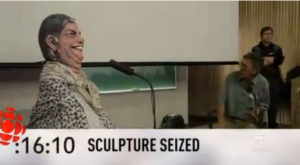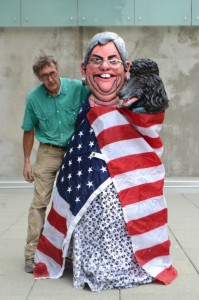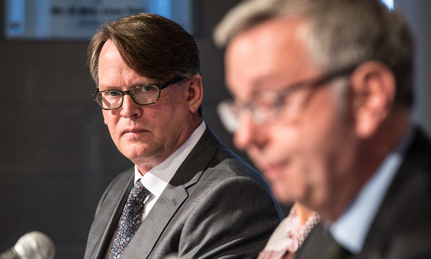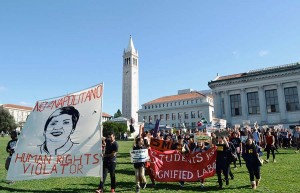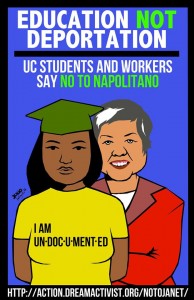CBC News, May 20, 2014–Turmoil at the University of Saskatchewan is intensifying with the sudden resignation of the provost and academic vice-president Brett Fairbairn.
Word of Fairbairn’s resignation came half an hour before an emergency board of governors meeting, which started at 8 p.m. CST Monday.
In a written statement, Fairbairn said stepping down was “the best contribution I can now offer [the university] under present circumstances”.
Fairbairn is the official who wrote last Wednesday to Robert Buckingham, the head of the School of Public Health, firing him as both the school’s executive director and tenured professor, and ordering him off campus.
Demands for more departures
The move touched off an uproar over threats to academic freedom. The firing came after Buckingham openly voiced concerns about the impact on his school of the cost-cutting plan TransformUS.
Buckingham subsequently had his tenure restored, but not his administrative job.
Fairbairn’s resignation touched off a flurry of tweets, with some calling for more departures.
“That’s one down”, said one tweet. “President next?” said another.
‘A deepening controversy, if not crisis’– Minister of Advanced Education, Rob Norris
The province’s minister of advanced education, Rob Norris, spoke at the closed-door board meeting.
He emerged after about an hour, and spoke to the media before leaving for his constituency office.
Norris said he spoke to the board about his continuing concerns “regarding compliance with the University of Saskatchewan Act, and also what I see and what we see as a deepening controversy — if not crisis — regarding the national reputation and international reputation of the University of Saskatchewan.
“That reputational damage that continues is of very deep concern to us,” Norris added.
One section of the act requires senior administration to report to the board before the dismissal of suspension of individuals, “so there are real questions about the substance of that kind of report process, especially given, and in light of the reversal that took place, and some of the commentary around that reversal,” Norris explained.
He left it to the board to consider whether it had breached the act or not.
No violations, board chair says
Around midnight, board chair Susan Milburn emerged, and told reporters both the board and the administration have complied with the legislation.
Just before Milburn came out to speak, she released a written statement saying: “Tonight, we discussed the leadership of the university in depth. We do not want to act in haste and therefore we have not made any final decisions, other than to maintain our strong commitment to financial sustainability and renewal. We will conclude our due diligence before a decision is rendered on university leadership.”
Asked if the board is looking for any other resignations or dismissals, Milburn said, “We don’t want to make any hasty decisions.”
She confirmed the board has received outside legal advice, and that it will discuss the matter further when it meets again next Monday and Tuesday.
Faculty association condemns ‘veto’
One item not discussed Monday night was the demand by the faculty association to rescind a board decision giving the university president a “veto” on tenure decisions.
Faculty association chair Doug Chivers says that violates their collective agreement, which states it’s up to the board of governors to approve recommendations on tenure.
And, he said, that view has been upheld in a judicial review.
Milburn said the association’s demand was not on the agenda for Monday night’s meeting.
When asked about the faculty’s concern, Norris called it a ‘very serious allegation,’ and said his department is looking into it.
Read More: CBC News

 Follow
Follow